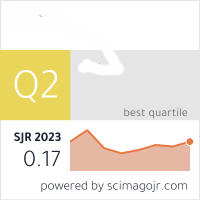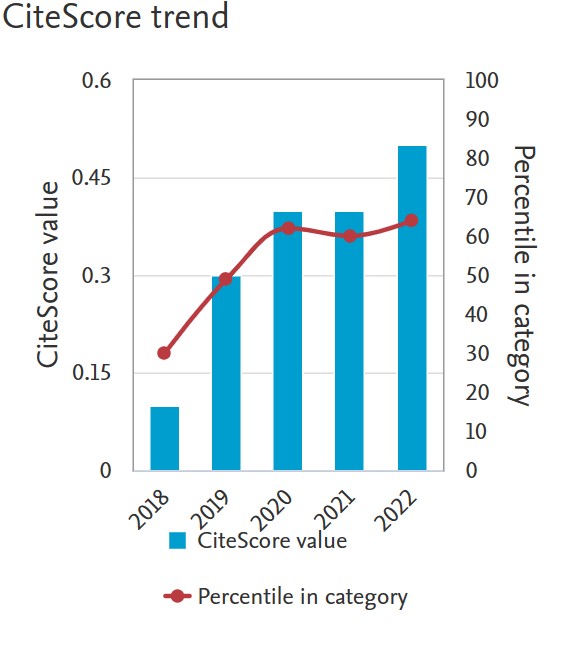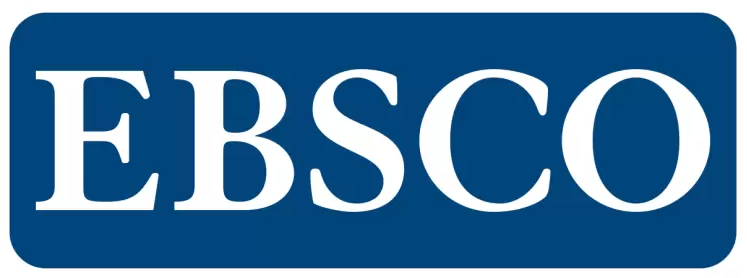Model of Kioi Leadership at Boarding Schools that Manage Salaf and Khalaf Learning
(Case Study at the Buntet Islamic Boarding School, Cirebon, West Java)
Keywords:
Leadership Model, Kiai, Salaf-Khalaf LearningAbstract
This research is motivated by the weak management of Islamic boarding schools, limited human resources, infrastructure and limited budgets, length of study time and the number of outside cultural influences that are increasingly unstoppable. The existence of pesantren is inseparable from the role of the kiai as caretaker. In the context of pesantren leadership, kiai have an important and strategic role in the development of pesantren. Types of Islamic boarding school educational institutions, in general these educational institutions can be grouped into two types, namely Salaf (Traditional) and Khalaf (Modern). These two types affect the kiai’s leadership model in managing learning in Islamic boarding schools. The challenge then is how the kiai’s leadership model can deal with the ongoing changes and developments in education. How can learning in the Salaf and Khalaf Islamic boarding schools improve its quality through the kiai leadership model? This study generally aims to analyze the leadership model of the kiai in managing Islamic boarding schools, both Salaf and Khalaf. The specific aim is that this research will get an explanation of how the kiai’s strategy is in developing the learning of Salaf and Khalaf Islamic Boarding Schools. Then from these results it is possible to compare the leadership model of the kiai in Islamic boarding schools of the Salaf and Khalaf so as to find one model of learning and management of both education. Therefore, the theory used in this study is Max Weber’s leadership theory and George S. Counts' reconstructionism and the Six Value Systems initiated by Prof. Ahmad Sanusi. The method used in this research is descriptive qualitative analytic. Then the findings from this study are that the leadership of the kiai with an integrated personality is the main attraction for the santri in particular and members of the surrounding community. Santri and community members expect blessings, wisdom and ma’unah from the kiai. The kiai’s leadership in organizing and managing the Buntet Islamic Boarding School shows responsibility and full attention, attractiveness and great influence for the santri. The attitude, behavior and actions of the kiai are observed, followed as an example and interpreted by the santri in the daily life of the Buntet Islamic Boarding School. The Buntet Islamic Boarding School manages Salafiearning with the sorogan, wetonan, kalaqah and Bahtsul Masa'il and Khalaf systems with a modern and innovative learning system. As a result, the conclusion is that the leadership model of the Buntet Islamic Boarding School kiai is charismatic-democratic and religious. This leadership model is very important and strategic. Kiai as a leader and determiner where with his influence and power can determine his steps and policies. The kiai's leadership model will determine the direction of development and progress of learning, whether salaf or khalaf.
Downloads
References
Ali, As'ad Said (2008), Upheaval in the Heart of
the NU Tradition that I Observe, Jakarta:
LP3ES
Ali Mohamad Jubran. (2015). Educational
Leadership: A New Trend That Society
Needs, in Procedia - Social and Behavioral
Sciences, vol. 210.
Alwasilah, A. Chaedar (2009), Basically
Qualitative Fundamentals of Designing and
Conducting Qualitative Research, 5th
Printing, Jakarta: PT Duma Pustaka Jaya
Azra, Azyumardi, (1997), Islamic Boarding
Schools: Continuity and Change, Islamic
Boarding School Rooms A Journey Portrait,
Jakarta: Paramadina.
Barlian, Ujang, Cepi (2016). Strategic Management.
Bandung: Khalifa Human Scholar
Baso, A. (2013), Islamic Boarding School Studies
a Book II: The Cosmolity of the Santri
Civilization in the Colonial Period, Cet. 2nd,
Jakarta: Afid Library
Cresswell, J. W. (1994). Research Design.
London: Sage Pubheations.
Cresswell, L W. (1998). Qualitative Inquiry and
Research Design. United Kingdom: The
Falmer Press.
Dacholfany, Ihsam, (2015), Learning Character
Education in the Style of the Gontor Islamic
Boarding School, Tangerang: Wafi Media
Tama
Dhofier, Zamakhsyari (2011), Islamic Boarding
School Traditions Study of Kiai's Views on
the Future of Indonesia, Revised Edition,
Jakarta: LP3ES
Djubaedi, Dedi (1999), Integrating Islamic Boarding
School-School Education: Theoretical Study in
the Perspective of National Education in
Marzuki Wahid, Eds. The Future of Islamic
Boarding Schools Empowerment and
Transformation of Islamic Boarding Schools,
Bandung: Hidayah Library
Fatah, Nanang. (1999), Basic Education Management. Bandung: Rineka Cipta.
Haedari, H. Amin, (2007), Directory of Islamic
Boarding Schools, Jakarta: Directorate of
Early Education and Directorate General of
Islamic Education, Ministry of Religion,
Republic of Indonesia.
Hanun Asrohah. (2004). Institutionalization of
Islamic Boarding Schools; The Origins and
Development of Islamic Boarding Schools in
Java. Jakarta: Ministry of Religion RI.
Hamalik, Oemar (2010), Curriculum
Development Management, Bandung :Rosda
Haryadi (2012), Leadership with Han
Nurani, Yogyakarta: Tugu
Horikhosi, Horoko (1987), Kiai and Social
Change, Jakarta: P3M
Huda, Syamsul (2018). The Kiai Leadership
Model of the Karangasem Muhammadiyah
Islamic Boarding School, Paciran.
Dissertation. Islamic Religious Education
Doctoral Postgraduate Program. Malang
Muhammadiyah University.
Indra, Hasbi (2003), Islamic Boarding Schools
and Social Transformation, Jakarta:
Penamadani
Cartono, Kartini. (2008), Leaders and
Leadership, Jakarta: Rajawali Press
Indrafachrudi, S. (2006), Introduction to Howto
Lead a Good School. Jakarta: Ghalia
Indonesia
Madjid, Nureliolis, (2007), Booths of a Islamic
Boarding School a Travel Portrait, Jakarta:
Paramadina.
Masdar, Umaruddin (2005), Gus Dur A Lover of
Ulama Throughout the Ages, Defender of
Religious Ethnic Minorities, Yogyakarta: LK1S
Milla Melyani. (2020). Understanding the
Hadith of the Quraysh Leadership: A
Comparative Study of Ibn Taymiyyah and
Ibn Khaldun. In the Journal of Hadith
Studies. Vols (05)
Muhammad Yousaf Jamil. (2015). Islamic
Perspective of Leadership. In the Journal of Islamic Thought and Civilization, Vol. 5. (02).
Moleong, Lezy. J. (2000), Qualitative Research
Methodology, Bandung: PT
RemajaRosdakarya
Muhaimin, A.G. (1999), Islamic Boarding Schools,
Congregations and Hodgson Conundrums:
Buntet Portraits in the Perspective of the
Transmission and Preservation of Islam in Java,
in Marzuki Wahid, et. al. (Eds). The Future of
Islamic Boarding Schools Empowerment and
Transformation of Islamic Boarding Schools,
Bandung: Hidayah Library
Nails, Ahmadi H. Syukron (2010), Professional
and Contemporary Dimension Madrasah
Education, Yogyakarta: LaksBang Pressindo
Nasir, Ridiwan, (2005), Looking for a Typology
of Ideal Educational Formats: Islamic
Boarding Schools in the Middle of Change,
Yogyakarta: Student Libraries.
Presidential Regulation Number 83 of 2015
concerning the Ministry of Religion (State
Gazette of the Republic of Indonesia of 2015
Number 168).
Regulation of the Minister of Religion Number
of 2016 concerning the Organization and
Work Procedure of the Ministry of Religion
(State Gazette of the Republic of Indonesia
of 2016 Number 1495);
Permenag Number 31 of 2020 concerning the
Establishment and Implementation of
Islamic Boarding Schools
Regulation of the Minister of Religion Number 31
of 2020 concerning the Establishment and
Implementation of Islamic Boarding Schools
was stipulated in Jakarta on 30 November 2020.
Rusydi, Muhammad. (2018). The Influence of
Leadership and Empowerment on the
Competency and Work Performance of
Region IX Kopertis Lecturers in Makassar
City. Dissertation of the Doctoral Program in
Economics and Business, Hasanudin
University Makassar.
Sanusi, Achmad (2012), Introduction to Books in
Learning Character Education in the Gontor
Islamic Boarding School (Pen. Ihsam
Dacholfany), Tangerang: Wail Media Tama
Sauri, Sotyan. (2010), Potential Self-Based
Character Education, Yogyakarta: Pelangi
Publishing.
Schermerhorn Jr. John R. (1996). Management
and Organizational Behavior: Essentials.
New York: John Wiley & Sons Inc.
Siroj, Said Aqil (2012), Sufism as Social
Criticism, Prioritizing Islam as Inspiration,
Not Aspiration, Jakarta: SAS Foundation and
LTN PBNU
Soekarso, (2002), Leadership Theory, Jakarta:
Media Discourse Partners
Suderadjat, Han. (2011), Thematic Learning
Management; Educating and Character
Learning, Bandung: CV. Sekar Gambir Asri.
Sutrisni, Timothy Febry Christian Wahyu. (2019).
The Influence of Strategic Leadership,
Organizational Culture, Management
Information Systems on the Implementation of
Total Quality Management and Company
Performance at PT. CS2 Healthy Model in
Indonesia. Dissertation. Doctoral Program in
Postgraduate School Management, Widya
Mandala Catholic University, Surabaya. .
Terry, George. R. and Rue, Leslie. W. (2010),
Fundamentals of Management, Cet. 11th,
Jakarta: Earth Literacy
Thoha, Muhammad. (2003), Leadership in
Management, Jakarta: PT Raja Grafindo
Law No. 20 of 2003 concerning the National
Education System
Law No. 39 of 2008 concerning State Ministries
(State Gazette of the Republic of Indonesia of
Number 166, Supplement to the State
Gazette of the Republic of Indonesia No. 4916).
Law Number 18 of 2019 Concerning Islamic
Boarding Schools (State Gazette of the
Republic of Indonesia of 2019 Number 191,
Supplement to the State Gazette of the
Republic of Indonesia Number 6406).Wahid, Kil. Abdurrahman, (1999), Prologue, Future
Islamic Boarding Schools in Marzuki Wahid,
Eds. The Future of Islamic Boarding Schools
Empowerment and Transformation of Islamic
Boarding Schools, Bandung: Hidayah Library
Wajdi, Farid and Royyani, M. Fathi (2004),
Buntet Islamic Boarding School Through
History, Cirebon: An-Nur Press
Published
Issue
Section
License
You are free to:
- Share — copy and redistribute the material in any medium or format for any purpose, even commercially.
- Adapt — remix, transform, and build upon the material for any purpose, even commercially.
- The licensor cannot revoke these freedoms as long as you follow the license terms.
Under the following terms:
- Attribution — You must give appropriate credit , provide a link to the license, and indicate if changes were made . You may do so in any reasonable manner, but not in any way that suggests the licensor endorses you or your use.
- No additional restrictions — You may not apply legal terms or technological measures that legally restrict others from doing anything the license permits.
Notices:
You do not have to comply with the license for elements of the material in the public domain or where your use is permitted by an applicable exception or limitation .
No warranties are given. The license may not give you all of the permissions necessary for your intended use. For example, other rights such as publicity, privacy, or moral rights may limit how you use the material.











